-
 Bitcoin
Bitcoin $75,368.5064
-9.56% -
 Ethereum
Ethereum $1,475.6983
-18.27% -
 Tether USDt
Tether USDt $0.9993
-0.07% -
 XRP
XRP $1.6871
-20.57% -
 BNB
BNB $533.2442
-9.92% -
 USDC
USDC $1.0001
-0.01% -
 Solana
Solana $99.6513
-17.17% -
 TRON
TRON $0.2239
-5.28% -
 Dogecoin
Dogecoin $0.1352
-19.09% -
 Cardano
Cardano $0.5300
-17.71% -
 UNUS SED LEO
UNUS SED LEO $8.9057
-2.68% -
 Toncoin
Toncoin $2.9596
-9.20% -
 Chainlink
Chainlink $10.5159
-17.59% -
 Avalanche
Avalanche $15.2819
-11.95% -
 Stellar
Stellar $0.2047
-18.67% -
 Shiba Inu
Shiba Inu $0.0...01066
-12.82% -
 Sui
Sui $1.7971
-17.36% -
 MANTRA
MANTRA $5.9100
-5.43% -
 Hedera
Hedera $0.1293
-18.97% -
 Dai
Dai $1.0000
-0.02% -
 Polkadot
Polkadot $3.3453
-15.09% -
 Bitcoin Cash
Bitcoin Cash $257.9335
-12.93% -
 Ethena USDe
Ethena USDe $0.9983
-0.09% -
 Litecoin
Litecoin $65.0409
-20.87% -
 Bitget Token
Bitget Token $3.7811
-15.20% -
 Pi
Pi $0.5557
-14.39% -
 Monero
Monero $192.0223
-10.44% -
 Hyperliquid
Hyperliquid $9.7233
-17.24% -
 OKB
OKB $50.7833
-6.24% -
 Uniswap
Uniswap $4.7993
-17.72%
What is the exchange crash? How to judge whether a platform is safe?
Exchange crashes can result from cybersecurity breaches, technical failures, or insolvency, causing significant financial losses and platform shutdowns.
Apr 04, 2025 at 05:07 pm
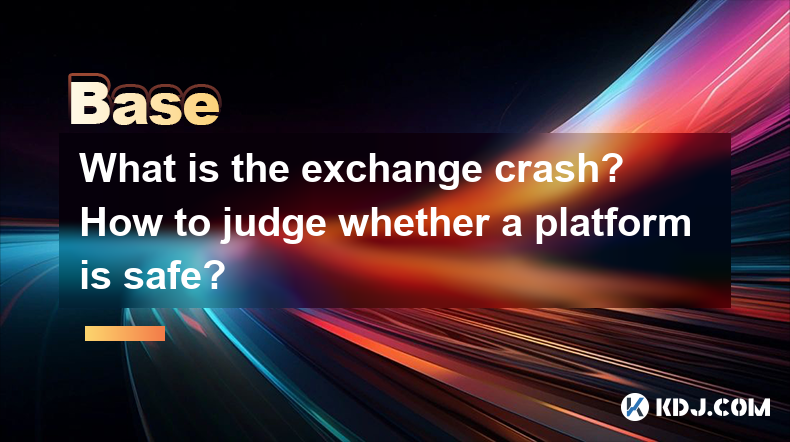
An exchange crash refers to a sudden and severe disruption in the operations of a cryptocurrency exchange platform, leading to significant financial losses for users and often resulting in the platform's inability to continue functioning. Such crashes can stem from various causes, including cybersecurity breaches, technical failures, or insolvency. Understanding the nature of these crashes is crucial for users to assess the safety of the platforms they use.
Understanding the Causes of Exchange Crashes
Exchange crashes can be triggered by a variety of factors, each posing different risks to users. One common cause is cybersecurity breaches, where hackers exploit vulnerabilities in the platform's security systems to steal funds. These breaches can lead to the loss of millions of dollars in a matter of minutes. Another significant factor is technical failures, such as software bugs or server overloads, which can cause the platform to become unresponsive or crash entirely. Lastly, insolvency occurs when an exchange is unable to meet its financial obligations, often due to poor management or fraudulent activities. This can lead to the exchange halting withdrawals, leaving users unable to access their funds.
Signs of an Unsafe Exchange Platform
Identifying whether a platform is safe involves recognizing several red flags that may indicate potential risks. Lack of transparency is a major concern; reputable exchanges should provide clear information about their operations, security measures, and financial status. Poor customer support can also be a warning sign, as it may indicate that the platform is not equipped to handle issues effectively. Additionally, frequent downtime or unexplained maintenance periods can suggest underlying technical problems. Finally, negative user reviews and reports of security incidents should be taken seriously, as they can provide insights into the platform's reliability and safety.
Evaluating the Security Measures of an Exchange
To judge the safety of a platform, it is essential to examine the security measures it has in place. Two-factor authentication (2FA) is a basic yet crucial security feature that adds an extra layer of protection to user accounts. Cold storage of funds, where the majority of user assets are kept offline, significantly reduces the risk of theft. Regular security audits conducted by independent third parties can also provide assurance that the platform's security systems are robust. Additionally, insurance coverage for user funds can offer a safety net in the event of a security breach.
Assessing the Financial Health of an Exchange
The financial health of an exchange is another critical factor in determining its safety. Proof of reserves is a practice where exchanges publicly demonstrate that they hold sufficient assets to cover user deposits. This can be done through third-party audits or by publishing wallet addresses. Regulatory compliance is also important, as exchanges that adhere to financial regulations are generally more accountable and less likely to engage in fraudulent activities. Financial statements and annual reports can provide further insights into the exchange's financial stability and management practices.
Steps to Take Before Using a Cryptocurrency Exchange
Before using a cryptocurrency exchange, users should take several steps to ensure their safety. Here are some detailed actions to consider:
- Research the platform: Look for reviews and ratings from other users, and check for any reported security incidents or regulatory issues.
- Verify security features: Ensure that the platform offers 2FA, cold storage, and regular security audits. Check if they have insurance coverage for user funds.
- Check for regulatory compliance: Confirm that the exchange is registered with relevant financial authorities and complies with anti-money laundering (AML) and know-your-customer (KYC) regulations.
- Evaluate financial health: Look for proof of reserves and review the exchange's financial statements and annual reports.
- Start with a small amount: Initially, deposit a small amount of funds to test the platform's functionality and responsiveness before committing larger sums.
Monitoring Your Investments and Staying Informed
Once you have chosen an exchange, it is important to monitor your investments and stay informed about any developments that may affect the platform's safety. Regularly check for updates on the exchange's website and social media channels, and stay alert to any news or reports of security incidents. Joining online communities and forums can also provide valuable insights and early warnings about potential issues.
Frequently Asked Questions
Q: Can an exchange recover from a crash?
A: Recovery from an exchange crash depends on the cause and severity of the incident. If the crash was due to a technical issue, the exchange may be able to restore operations and compensate affected users. However, if the crash was caused by insolvency or a major security breach, recovery is less likely, and users may face significant losses.
Q: How can I protect my funds if an exchange crashes?
A: To protect your funds, always use exchanges that offer strong security measures, such as 2FA and cold storage. Additionally, never keep more funds on an exchange than you are willing to lose. Regularly withdraw your assets to a secure personal wallet to minimize risk.
Q: Are decentralized exchanges safer than centralized exchanges?
A: Decentralized exchanges (DEXs) can be safer in some ways because they do not hold user funds, reducing the risk of theft. However, DEXs may have other vulnerabilities, such as smart contract bugs, and they often offer less user-friendly interfaces and lower liquidity compared to centralized exchanges.
Q: What should I do if I suspect an exchange is about to crash?
A: If you suspect an exchange is about to crash, immediately withdraw your funds to a secure personal wallet. Monitor news and user reports for any signs of trouble, and consider diversifying your assets across multiple platforms to spread risk.
Disclaimer:info@kdj.com
The information provided is not trading advice. kdj.com does not assume any responsibility for any investments made based on the information provided in this article. Cryptocurrencies are highly volatile and it is highly recommended that you invest with caution after thorough research!
If you believe that the content used on this website infringes your copyright, please contact us immediately (info@kdj.com) and we will delete it promptly.
- The Rise of Stablecoins in Global Finance
- 2025-04-07 14:15:12
- Movement (MOVE) Has Emerged as an Intriguing Altcoin
- 2025-04-07 14:15:12
- BeraChain's decentralized lending protocol Beraborrow officially launches Proof of Liquidity (POL)
- 2025-04-07 14:10:12
- Solana (SOL) Price Prediction: Can the Ghibli Meme Coin Frenzy Fuel a 96% Rally?
- 2025-04-07 14:10:12
- Cryptocurrencies Are Not Just a Trend—They've Become an Essential Part of the Financial World
- 2025-04-07 14:05:12
- The Best Crypto to Buy the Dip – Low Price, Big Potential
- 2025-04-07 14:05:12
Related knowledge
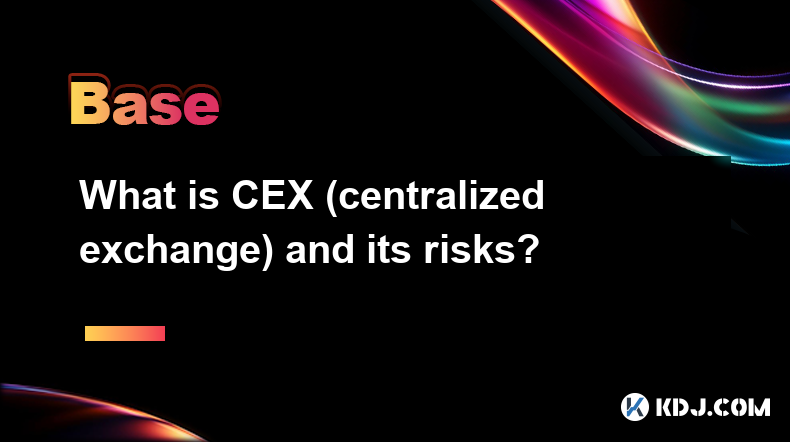
What is CEX (centralized exchange) and its risks?
Apr 07,2025 at 02:28pm
A Centralized Exchange (CEX) is a platform where users can trade cryptocurrencies for other assets, including other cryptocurrencies, fiat money, or derivatives. These exchanges are operated by a central authority or company that manages the platform, holds users' funds, and facilitates transactions. Some of the most well-known CEXs include Binance, Coi...
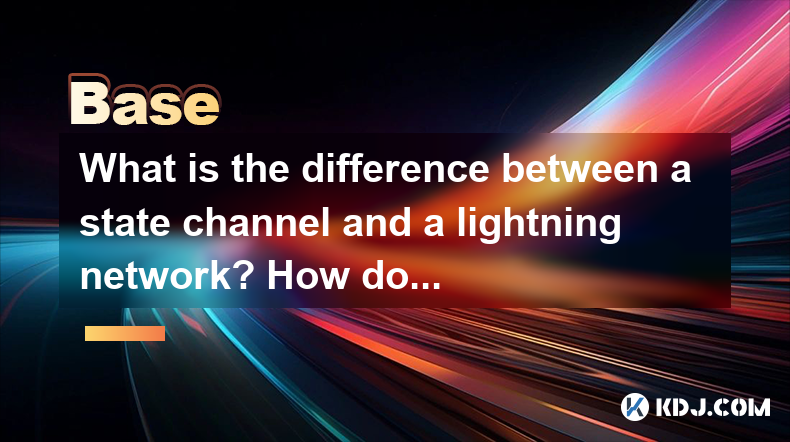
What is the difference between a state channel and a lightning network? How do they improve transaction efficiency?
Apr 05,2025 at 05:21pm
State channels and the Lightning Network are two significant technologies within the cryptocurrency ecosystem aimed at improving transaction efficiency on blockchain networks. Both solutions address the scalability issues of blockchain systems, particularly in handling a high volume of transactions quickly and with low fees. However, they operate differ...
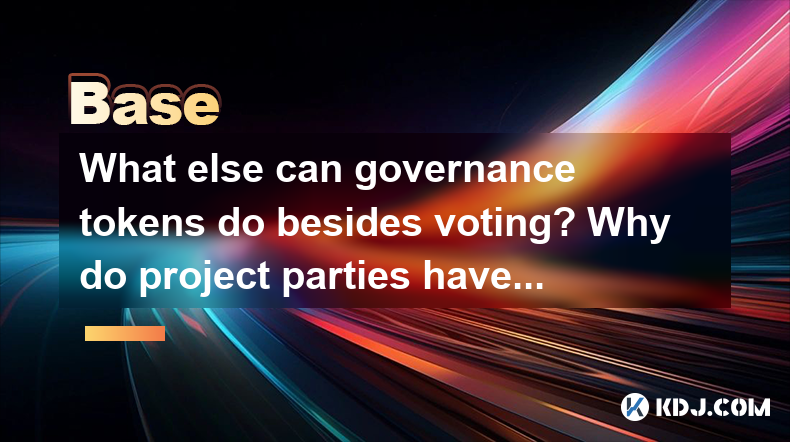
What else can governance tokens do besides voting? Why do project parties have to issue one?
Apr 06,2025 at 06:42pm
Governance tokens have become a pivotal element in the decentralized ecosystem, serving functions that extend far beyond the simple act of voting. While voting is a crucial aspect of these tokens, allowing token holders to influence the direction and decisions of a project, there are numerous other roles that governance tokens play within the cryptocurr...
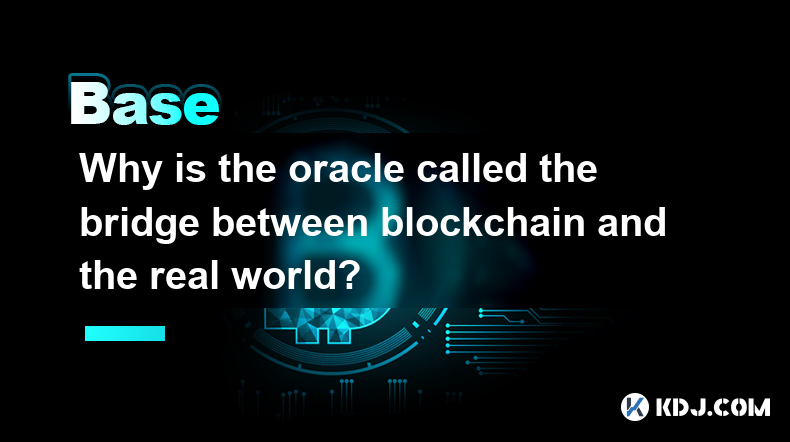
Why is the oracle called the bridge between blockchain and the real world?
Apr 04,2025 at 04:00am
The concept of an oracle in the cryptocurrency and blockchain world is crucial for understanding how these decentralized systems interact with external data. The oracle is often referred to as the bridge between blockchain and the real world because it serves as a vital intermediary that fetches, verifies, and transmits off-chain data to the on-chain en...
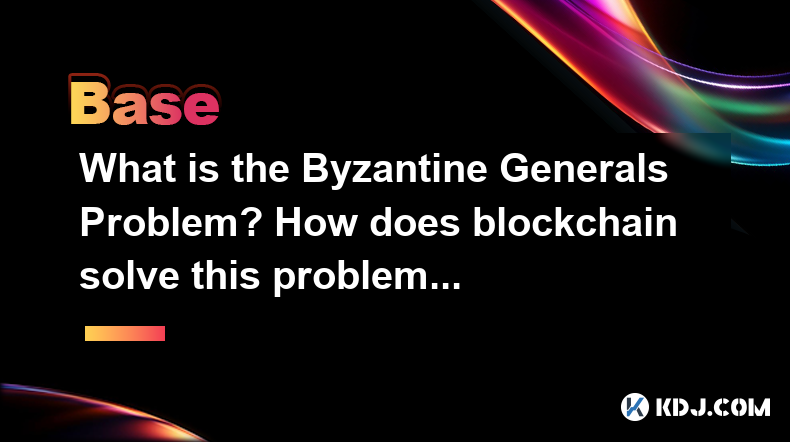
What is the Byzantine Generals Problem? How does blockchain solve this problem?
Apr 05,2025 at 06:29am
The Byzantine Generals Problem is a classic problem in the field of distributed computing and computer science, which has significant implications for the reliability and security of decentralized systems, including blockchain technology. This problem is named after a hypothetical scenario involving several generals of the Byzantine army who must coordi...
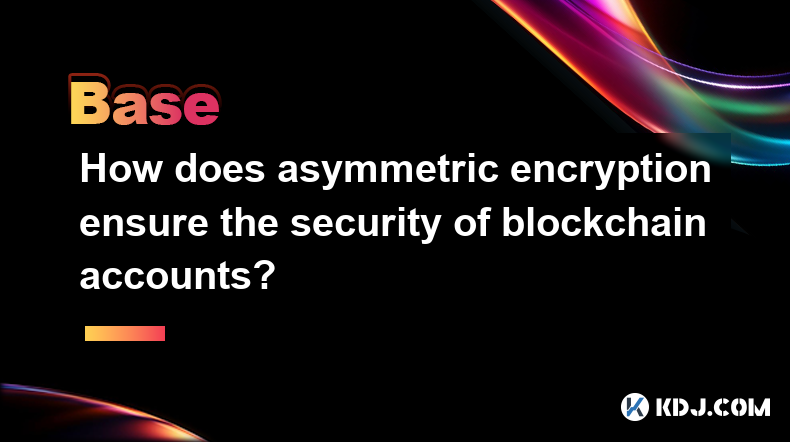
How does asymmetric encryption ensure the security of blockchain accounts?
Apr 06,2025 at 07:50am
Asymmetric encryption plays a critical role in securing blockchain accounts by providing a robust method of safeguarding private keys and ensuring secure transactions. This article delves into how asymmetric encryption works and why it is indispensable for the security of blockchain accounts. What is Asymmetric Encryption?Asymmetric encryption, also kno...

What is CEX (centralized exchange) and its risks?
Apr 07,2025 at 02:28pm
A Centralized Exchange (CEX) is a platform where users can trade cryptocurrencies for other assets, including other cryptocurrencies, fiat money, or derivatives. These exchanges are operated by a central authority or company that manages the platform, holds users' funds, and facilitates transactions. Some of the most well-known CEXs include Binance, Coi...

What is the difference between a state channel and a lightning network? How do they improve transaction efficiency?
Apr 05,2025 at 05:21pm
State channels and the Lightning Network are two significant technologies within the cryptocurrency ecosystem aimed at improving transaction efficiency on blockchain networks. Both solutions address the scalability issues of blockchain systems, particularly in handling a high volume of transactions quickly and with low fees. However, they operate differ...

What else can governance tokens do besides voting? Why do project parties have to issue one?
Apr 06,2025 at 06:42pm
Governance tokens have become a pivotal element in the decentralized ecosystem, serving functions that extend far beyond the simple act of voting. While voting is a crucial aspect of these tokens, allowing token holders to influence the direction and decisions of a project, there are numerous other roles that governance tokens play within the cryptocurr...

Why is the oracle called the bridge between blockchain and the real world?
Apr 04,2025 at 04:00am
The concept of an oracle in the cryptocurrency and blockchain world is crucial for understanding how these decentralized systems interact with external data. The oracle is often referred to as the bridge between blockchain and the real world because it serves as a vital intermediary that fetches, verifies, and transmits off-chain data to the on-chain en...

What is the Byzantine Generals Problem? How does blockchain solve this problem?
Apr 05,2025 at 06:29am
The Byzantine Generals Problem is a classic problem in the field of distributed computing and computer science, which has significant implications for the reliability and security of decentralized systems, including blockchain technology. This problem is named after a hypothetical scenario involving several generals of the Byzantine army who must coordi...

How does asymmetric encryption ensure the security of blockchain accounts?
Apr 06,2025 at 07:50am
Asymmetric encryption plays a critical role in securing blockchain accounts by providing a robust method of safeguarding private keys and ensuring secure transactions. This article delves into how asymmetric encryption works and why it is indispensable for the security of blockchain accounts. What is Asymmetric Encryption?Asymmetric encryption, also kno...
See all articles





















































































